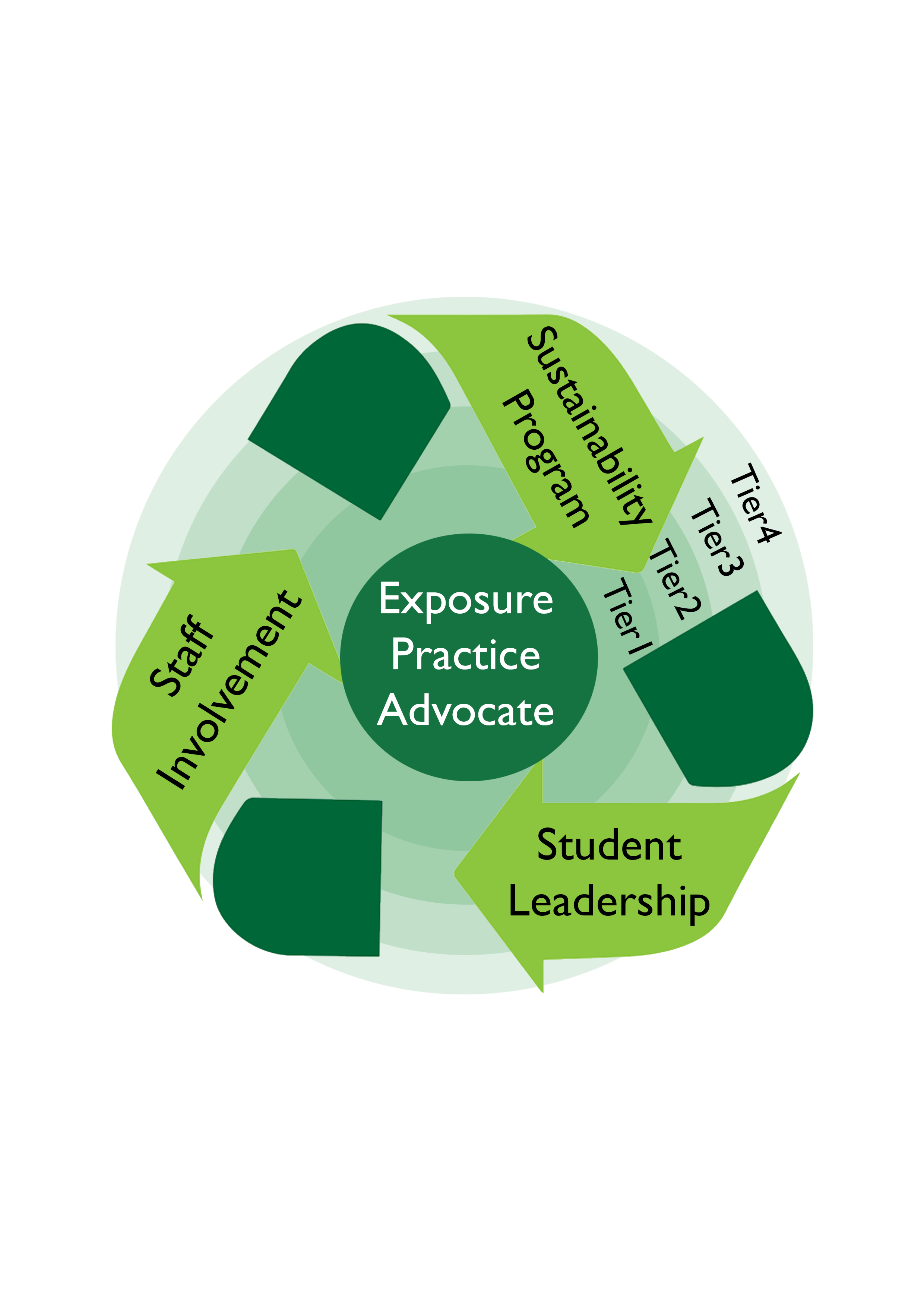Science

Experiencing Science, Enriching Mind
Central to the Science curriculum is the inculcation of the spirit of scientific inquiry to innovate and inspire. Taking cognizance of this, the Science department aims to provide our pupils with a range of learning experiences such as scientific investigations, authentic learning tasks and learning journeys. These will create the opportunities for our pupils to think, talk and inspire others about issues and pose questions that are related to the roles of science in our daily lives, society and the environment. To develop in our pupils the skills, habits of mind and attitudes necessary for scientific inquiry, the school adopts the Predict-Observe-Explain-Wonder (POEW) thinking routine. This routine advocates that teacher leverages and builds on pupils’ prior knowledge and experience to help them make observations then construct new knowledge or idea to innovate, and to continually assess their understanding of a concept.
School-Based Curriculum
| Themes | Lower Block |
Upper Block |
||
|---|---|---|---|---|
| Primary 3 | Primary 4 | Primary 5 | Primary 6 |
|
| Diversity |
Diversity of Living and Non-living things Diversity of Materials |
|||
| Cycles |
Cycles in plants and animals (Life Cycles) |
Cycles in plants and animals (Life Cycles) Cycles in matter |
Cycles in plants and animals (Reproduction) Cycles in water |
|
| Systems |
Plant System (Transport System) Human System (Respiratory and Circulatory systems) Cell System Electrical System |
|||
| Interactions |
Interaction of forces (Magnets) |
Interaction of forces (Magnets) |
Interaction of forces (Frictional force, Gravitational force, force in springs, Magnetic force) Interaction within the environment |
|
| Energy |
Energy form and uses (Light and Heat) |
Energy forms and uses (Photosynthesis) Energy conversion |
||
Authentic Learning through Learning Journeys
We believe that learning should not be restricted to only in the classroom and that the learning becomes more real and long-lasting as the pupils see for themselves how the concepts in the textbook are lived out in real-life. As part of the department’s vision of “Experiencing Science, Enriching Minds”, we plan learning journeys that ties in with at least 1 of the main topic for each level. These learning journeys authenticate their classroom-based learning as pupils make real and concrete what they have learnt in school. This allows our pupils to better appreciate Science in daily life and society, and understand the relationship between Science and the environment.
Green! @ PHPPS
Green!@PHPPS was initiated with the EPA - Exposure, Practice and Advocate in mind. This is in line with the X3 developmental plan to provide our students with a rich experience in practicing green initiatives. The first level is exposure which aims to raise awareness on environmental issues. The second level focuses on designing opportunities for students to practice different habits to support students’ development as socially responsible individuals. Lastly, at the third level, we hope that each student can be an advocate for environmental issues.
Green!@PHPPS is anchored using the 3S framework – Sustainability Programs, Student Leadership and Staff Involvement. The science department, with the strong support of all other teaching and non-teaching staff, advocates environmental issues through exposure to real-world environmental contexts and exercising sustainability practices in students’ daily life. This is in alignment with the curriculum and culture components of the MOE Eco-stewardship programme.
The Green!@PHPPS focus for each year is divided into 3 environmental themes. To ensure that each environmental theme has a positive impact on students, the culture aspect through practice is closely tied in with the curriculum aspects through SLS lessons and Green!Times. The learning experience are also tiered at 4 levels:
• Tier 1 - Class experiences (SLS lessons, Class recycling corners, Green!@PHPPS Progress Card)
• Tier 2 - Level experiences (Competitions, Green Projects)
• Tier 3 - School wide experiences (Sustainability practices in school, Sharing by environmental leaders, Green!Times)
• Tier 4 - Community experiences (VIA, projects and collaboration with external agencies)

Innovation Programme (IvP)
Innovation programme (IvP) provides a unique opportunity for selected Primary 5 pupils to develop their problem-solving and inventive skills. The Innovation Programme aims to equip the pupils with the mind-set, skills and knowledge of an Entrepreneur and to assist the pupils to generate new, innovative ideas that can help the society and improve our living conditions. The various training sessions that the pupils attend helps to nurture a “problem-solution” mind-set for pupils and to enhance the pupils’ creative and innovative thinking skills. The pupils will develop a prototype that helps improve the lives of people and to present their idea in front of a panel of judges who will select the best innovative product as well as the best presentation group.
### Assessment Assessment is an integral part of learning and there are different modes of assessment that the Science employ to assess our pupils’ understanding of the concepts taught as well as to identify the learning gaps for intervention.
Checklists and rubrics are used to monitor the pupil’s understanding of key learning for each level with the P3 pupils (2023) going through project assessment. Project assessment would provide teachers with the opportunity to assess students in various areas like – note-taking, collection of samples, creation of prototypes, reflection, etc. Topical worksheets are given at the end of each topic and these help to consolidate the learning of the concepts as the pupils apply what they have learnt to answer the questions in these worksheets. These form part of the assessment for learning where feedback is given to the pupils on their work for improvement.
Practical skills are assessed during the performance tasks. Pupils are assessed on how well they conducted the experiments and how they analyse and evaluate the data they have collected to draw conclusions. Feedback from the teachers are given to the pupils to help them improve on how they should conduct the experiment accurately.

